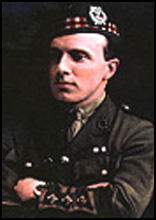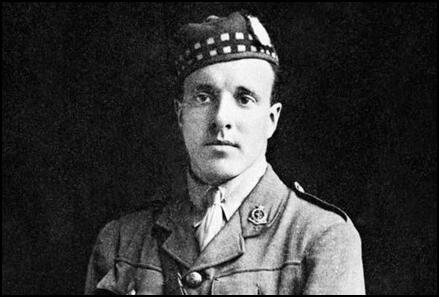Noel Chavasse

Noel Godfrey Chavasse was born in Oxford on 9th November, 1884. His father, Francis Chavasse, became Bishop of Liverpool in 1900.
Chavasse was educated at Liverpool College and Trinity College, Oxford . After graduating with first class honours in 1907 he studied medicine. In 1908 Chavasse and his twin brother, Christopher, both represented Britain in the Olympic Games in the 400 metres.
In 1909 Chavasse joined the Oxford University Officer Training Corps Medical Unit. The following year he sat and passed the examination that allowed him to join the Fellowship of the Royal College of Surgeons. Chavasse worked in Dublin and the Royal Southern Hospital in Liverpool before joining the Royal Army Medical Corps in 1913.
On the outbreak of the First World War Chavasse offered to serve in France. He was transferred to the Western Front in November 1914 where he was attached to the Liverpool Scottish Regiment. In the first few months Chavasse was kept busy dealing with trench foot, a condition caused by standing for long periods in mud and water.
In March 1915 the regiment took part in the offensive at Ypres, where poison gas was used for the first time. By June 1915 only 142 men out of the 829 men who arrived with Chavasse remained on active duty. The rest had been killed or badly wounded.

Chavasse was promoted to captain in August 1915 and six months later was awarded the Military Cross for his actions at the Battle of Hooge. In April 1916 he was granted three days leave to receive his award from King George V.
In July 1916 Chavasse's battalion was moved to the Somme battlefield near Mametz. On the 7th August the Liverpool Scottish Regiment were ordered to attack Guillemont. Of the 620 men who took part in the offensive, 106 of the men were killed and 174 were wounded. This included Chavasse who was hit by shell splinters while rescuing men in no-mans-land. For this he was awarded the Victoria Cross.
In February 1917 he was granted 14 days leave in England. He returned to the Liverpool Scottish Regiment and took part in the offensive at Passchendaele. For nearly two days he went out into the battlefield rescuing and treating wounded soldiers. It was during this period Noel performed the deeds that gained him his second Victoria Cross.
After being badly wounded Chavasse was sent to the Casualty Clearing Station at Brandhoek. Although operated on he died on 4th August 1917. Noel Godfrey Chavasse was Britain's most highly decorated serviceman in the war.
Primary Sources
(1) The London Gazette (28th October, 1916)
During an attack he (Noel Chavasse) tended the wounded in the open all day, under heavy fire, frequently in view of the enemy. During the ensuing night he searched for wounded on the ground in front of the enemy's lines for four hours. Next day he took one stretcher-bearer to the advanced trenches, and, under heavy fire, carried an urgent case for 500 yards into safety, being wounded in the side by a shell splinter during the journey. The same night he took up a party of trusty volunteers, rescued three wounded men from a shell hole twenty five yards from the enemy's trench, buried the bodies of two officers and collected many identity discs, although fired on by bombs and machine guns. Altogether he saved the lives of some twenty badly wounded men, besides the ordinary cases which passed through his hands. His courage and self-sacrifice were beyond praise.
(2) The London Gazette (14th September, 1916)
Though severely wounded early in the action whilst carrying a wounded soldier to the dressing station, he (Noel Chavasse) refused to leave his post, and for two days, not only continued to perform his duties, but in addition, went out repeatedly under heavy fire to search for and attend to the wounded who were lying out. During these searches, although practically without food during this period, worn with fatigue and faint with his wound, he assisted to carry an number of badly wounded men over heavy and difficult ground. By his extraordinary energy and inspiring example was instrumental in rescuing many wounded who would have otherwise undoubtedly succumbed under the bad weather conditions. This devoted and gallant officer subsequently died of his wounds.

